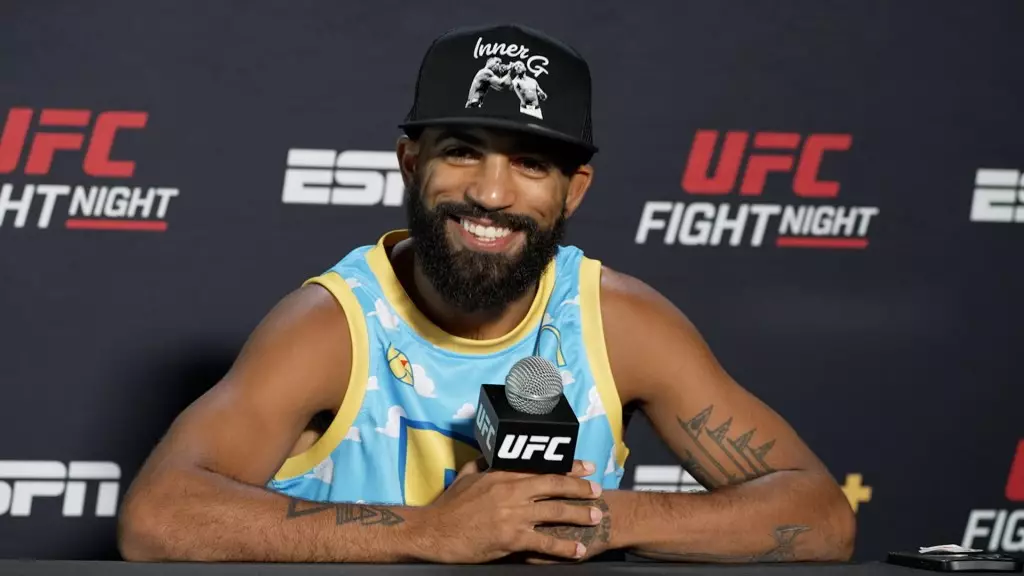In the ever-evolving landscape of mixed martial arts, fighters frequently seek ways to elevate their status and gain recognition among their peers. Charles Johnson is currently in pursuit of just that—an opportunity to face prominent names in the UFC flyweight division after securing his fourth consecutive victory alongside a recent win over Su Mudaerji. As he eyes notable opponents, Johnson’s desire underscoring the need for growth and visibility within the 125-pound bracket may resonate with numerous fighters experiencing similar aspirations.
A Rising Contender’s Journey
Johnson’s fighting career, marked by notable accomplishments, has now propelled him into a promising position. With a professional record of 17 wins and 6 losses (6-4 in the UFC), he appears on the precipice of a significant breakthrough. This milestone is essential not only for personal achievement but also for the broader flyweight division, which is currently in need of charismatic and marketable athletes. The appeal for more high-profile matchups indicates Johnson’s understanding of the business side of mixed martial arts, a crucial aspect often overlooked by fighters solely focused on in-cage performance.
After his latest bout, Johnson expressed his eagerness to challenge top contenders like Kai Kara-France and Manel Kape. This ambition is more than mere bravado; it stems from a clear assertion of his capabilities and readiness to engage with elite competitors. By targeting fighters ranked within the top eight, Johnson articulates the necessity of being granted opportunities that match his current momentum and skill set, adding an extra layer of importance to his request. His enthusiasm resonates with fighters in all divisions—they recognize that the path to stardom requires not only talent but also strategic matchmaking.
Johnson’s self-promotion reflects a growing trend among fighters who understand the importance of charisma and the ability to engage audiences outside the octagon. In his comments, he not only highlighted his achievement but also pointed out a perceived gap in the flyweight division regarding marketability. He emphasized that while other contenders might possess remarkable fighting skills, their inability to engage with English-speaking fans can limit their exposure. Johnson’s confidence and personality may be the catalysts required to rekindle interest in a division that, despite its athletic prowess, sometimes lacks public interest.
As Charles Johnson seeks higher competition and the attention he believes is due, he embodies a new wave of fighters aiming to disrupt the status quo within the UFC. His call for bigger fights is a reflection of both personal ambition and a broader critique of what the division requires. Acknowledging that strong contenders can come with charm and the ability to connect with fans adds a refreshing perspective to the sport. The MMA landscape is dynamic, and with fighters like Johnson advocating for change, there is always the potential for rejuvenation in a competitive yet often overshadowed weight class.

